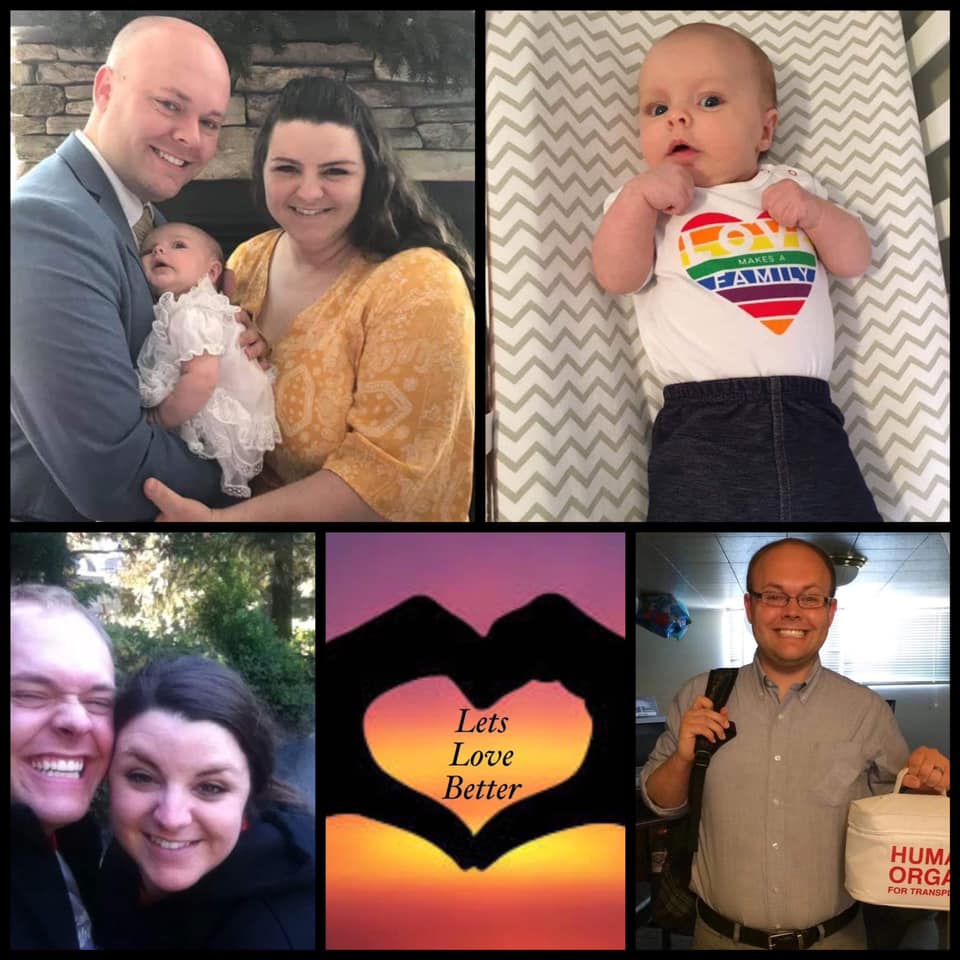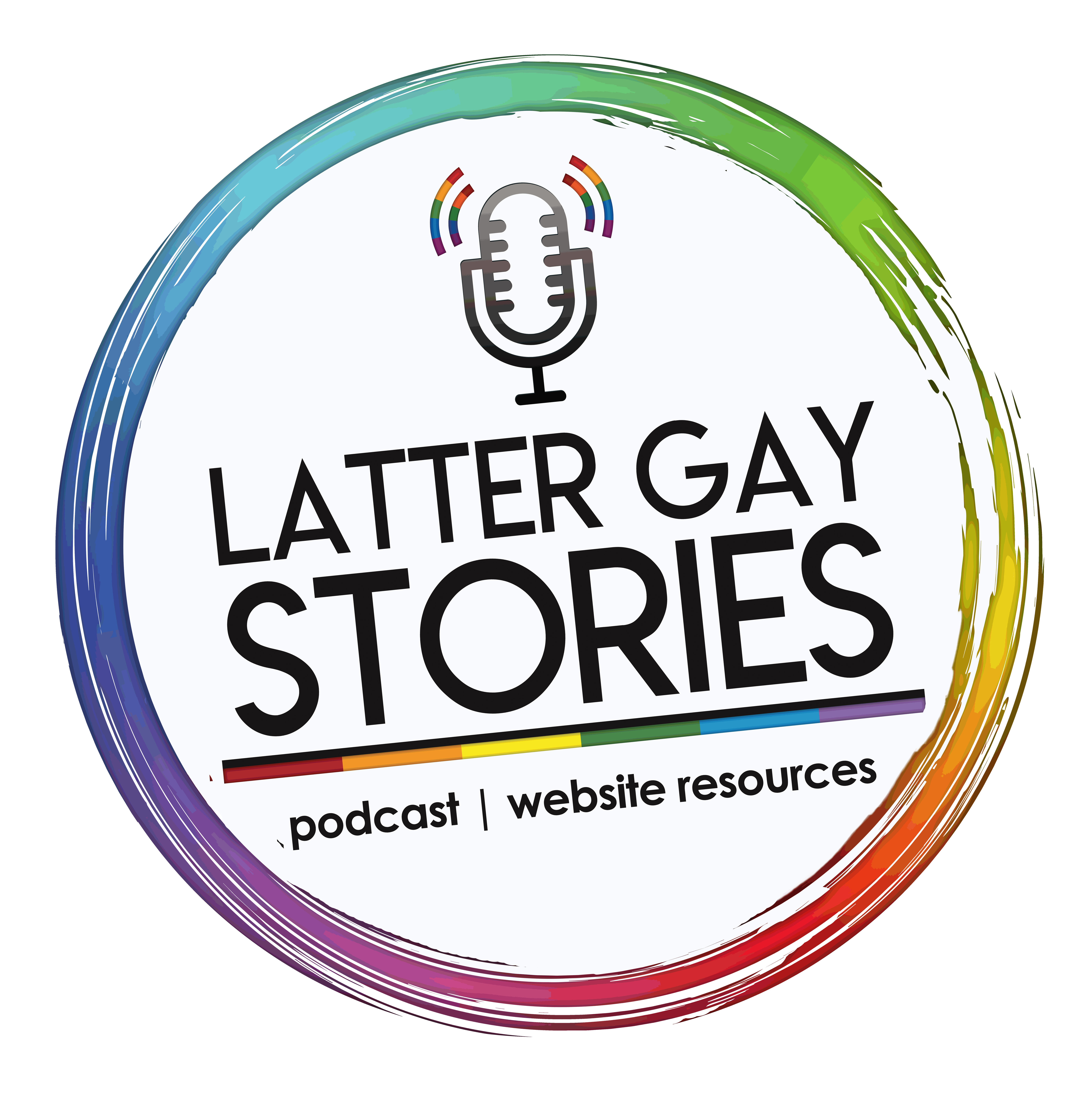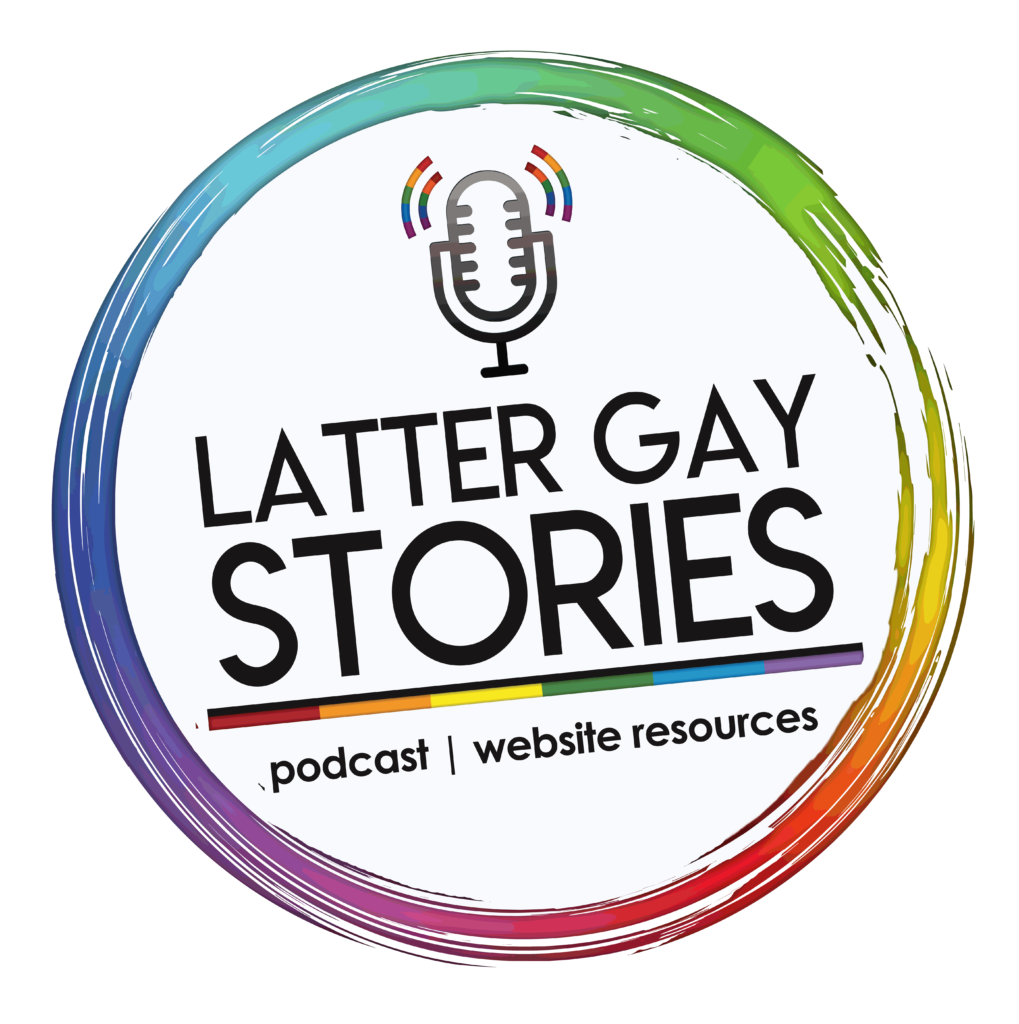Hello! My name is Deven Jennings. A little about me: I am a proud new dad to a beautiful baby girl (as seen in this picture below), a native Oregon boy (go Ducks!), a passionate psych nurse (how do you feel about that?), a joyful member of the Church of Jesus Christ of Latter-Day Saints (I have, like 3 callings right now to prove it), an enthusiastic Ravenclaw (wit beyond measure…), an infatuated husband to the most beautiful woman (you can be jealous!), and I am bisexual (ya, I’m that complex). Here is a little of my story.

My story starts with a limited vocabulary and limited exposure. When I was young, I remember thinking how odd it was that I was feeling attracted to the girls and the boys in my class. I can remember going to middle school and having crushes on the girls and then going to boy scouts and having crushes on the boys. I thought, “maybe this is what everyone experiences!” But I soon found that I was anything but “normal.” Growing up, I only heard the words “gay” and “lesbian,” so, for some time, I thought, “well, I must be gay. What else is there?” I had never heard the term bisexual.
Being raised in the Church of Jesus Christ of Latter-day Saints, I heard rhetoric about LGBTQ+ people, and I built up an internalized homophobia (though I would never have used those words). I don’t recall what was actually taught in my Sunday School classes, but I do remember the impression that I had instilled in me that “the gays and lesbians are bad” and that “being different is bad” and that “if I am different, I must be bad.” This narrative began to chip away at my self-esteem, and I felt shameful about my experience and who I was.
Highschool was incredibly difficult for me. I was able to date and have fun with girls, but I always felt hypercautious about the way I interacted with boys, fearful that there was a part of me that was bad. There were a few times that I really connected to guys I met, but I would immediately feel consumed with shame, and I would run away from those relationships. I loved dating girls and thought, “well, it’s a good thing that I feel really attracted to girls!” My testimony in the gospel continued to be strong, and I found both great comfort and great pain in some of the teachings of the church. I decided to serve a mission and was able to repress many of the thoughts and feelings I was having.
I returned home from my mission and was accepted to the College of Nursing at Brigham Young University. I continued to repress my thoughts and feelings for some time, though I came close to outing myself to a bishop. However, I never felt like I could address what I was experiencing. At the time, I still was self-identifying as gay, because that was the only term I knew. A few semesters into my nursing program, I met the love of my life and thought, “well, I don’t know what I was feeling before this… but I know that I am madly in love!” It was the first time that I felt truly connected to another person, and we got married.
My belief and testimony in the church continued to be an essential part of my identity, as it was for my wife, so we got married in the Rexburg Idaho Temple.
It wasn’t until after taking on my first job at the University of Utah Hospital that I began to expand my appreciation and understanding of what it meant to be LGBTQ+. I started working with many people who identified along the LGBTQ+ spectrum, and I found that people who I once thought were odd and other, were actually searching for authenticity and inclusion… just like I was. I remember creating a 20-page letter explaining my life story, including how I thought I might be gay. I remember being so scared when I shared that letter with my wife. What makes that letter so remarkable was that it was the first time that I openly shared my sexuality with another person. That letter led to discussions, inquiries, and soul-searching. I began to read stories, hear experiences, and even joined a few Facebook pages.
About a year after I shared that letter with my wife, I told her, “you know, I think that I am more bisexual than gay. I read an article about being bisexual, and that seems to fit me better.” I have said this a hundred times, but I could not have asked for a more understanding and patient partner! She has been by my side along this path of self-discovery. Her kindness and understanding have been a bedrock for me as I have come to understand better who I am. I joined a Facebook group for bisexual Mormons and found many people who shared similar experiences to my own. I found the Augenstein’s Sunday School and attended and felt so at peace with who I am.
Later, I began a clinical rotation at the Utah Pride Center and again found inclusion and support, while also expanding my experience working with the LGBTQ+ community.
At this point in my journey, I am becoming more comfortable with who I am. I remain an active member of the church with many questions that I still don’t have answers for. My wife and I are happily married, and we now have a little baby girl that adds to our fun and excitement. I am still attracted to both men and women, but I choose to remain completely and utterly committed to the love of my life! I have slowly come out to friends and family, but I still have a way to go before I feel entirely comfortable with sharing my sexuality with a broader audience (though, I guess this may be a broader audience… so…).
The most significant concern or fear that I have about coming out is that people will immediately build up walls of separation without first allowing me to express or share my experience and story. In conjunction with that, I am worried that people will allow their own internalized homophobia/biphobia to suddenly cloud their impression or opinion of me without considering that I am the same person that I was before I came out to them. I have been very selective in who I have come out to, but the more I share my story, the more connected I feel to my sense of self and who I am.
Another concern that I face is “bisexual erasure.” The best way I can describe bisexual erasure is that “I am not straight enough for straight people, but I am not gay enough for gay people.” I reside somewhere in the middle of sexuality, and for some people, that seems to be mind-boggling. I remember attending an LGBTQ+ support group and feeling like I was not queer enough to be present because I was attracted to both men and women. One person told me, “well, saying you are bisexual is just you denying that you are actually gay.” In a different support group, specific for bisexual people, I remember receiving the impression that “you are not being true to your queerness because you are in a hetero-relationship.” I left both groups feeling frustrated, isolated, and alone. I thought that I was being discounted and unheard as if people were saying that I didn’t belong in any circle. I turned to friends and found support in the bisexual experience. I learned that bisexual people can be found in all types of relationships. I found that labels can be both empowering and destructive, especially when people attempt to box you into a label or term, according to their description. I have found strength in forging my own path to authenticity and realizing that the only labels that are important to me are the ones I choose to apply.
Here are some of my thoughts that I would share with people who have a hard time accepting or understanding people who identify as bisexual (or pansexual, queer, or any other sexually fluid experience):1) We are not gay or straight and in denial. 2) Not every bisexual person has the same experience. We are a diverse bunch! 3) Sexuality is not always set in stone. People can be dynamic and changing. 4) Just because some of us may be in heterosexual relationships, it does not mean that we aren’t proud members and advocates of the LGBTQ+ community. And finally, 5) WE DO EXIST!
I have also come to an understanding that my sexuality is only one part of my overly complicated identity. I am a husband, a father, a Mormon, a student, a nurse, a passionate advocate for those struggling with mental health disorders, a die-hard Harry Potter fanatic, and… yes… a bisexual, cis-gender man in a committed monogamous relationship.
I hope that my story might shed some light on what it is like for me to be bisexual. I will add that my account, my perspectives, and my thoughts are my own, I can’t speak for anyone else’s experience. But my story is my own.
Want to read another story like this one?
CLICK HERE for more!
This In My Own Words story is a contribution from Let’s Love Better, a Facebook group dedicated to helping people learn to better share love, while fostering an atmosphere of understanding. When we know better, we do better.



Comments are closed.